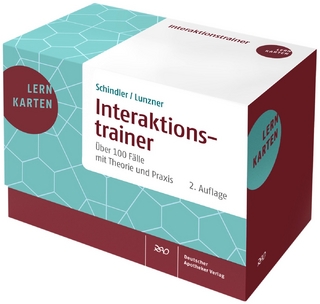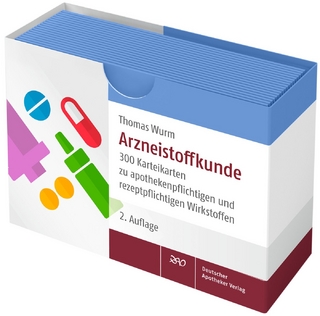
Computational Drug Design
Wiley-Interscience
978-0-470-12685-1 (ISBN)
Helps you choose the right computational tools and techniques to meet your drug design goals Computational Drug Design covers all of the major computational drug design techniques in use today, focusing on the process that pharmaceutical chemists employ to design a new drug molecule. The discussions of which computational tools to use and when and how to use them are all based on typical pharmaceutical industry drug design processes.
Following an introduction, the book is divided into three parts:
Part One, The Drug Design Process, sets forth a variety of design processes suitable for a number of different drug development scenarios and drug targets. The author demonstrates how computational techniques are typically used during the design process, helping readers choose the best computational tools to meet their goals.
Part Two, Computational Tools and Techniques, offers a series of chapters, each one dedicated to a single computational technique. Readers discover the strengths and weaknesses of each technique. Moreover, the book tabulates comparative accuracy studies, giving readers an unbiased comparison of all the available techniques.
Part Three, Related Topics, addresses new, emerging, and complementary technologies, including bioinformatics, simulations at the cellular and organ level, synthesis route prediction, proteomics, and prodrug approaches.
The book's accompanying supplementary materials, a special feature, offers graphics of the molecular structures and dynamic reactions discussed in the book as well as demos from computational drug design software companies..
Computational Drug Design is ideal for both students and professionals in drug design, helping them choose and take full advantage of the best computational tools available.
David C. Young, PhD, is HPC Computational Specialist for Computer Sciences Corp., under contract to the Alabama Supercomputer Authority, where he heads user and application support for research and educational activities. Dr. Young has extensive experience in designing drugs and writing drug design software. He is the author of Computational Chemistry: A Practical Guide for Applying Techniques to Real World Problems, also published by Wiley.
Preface. Acknowledgements.
About the Author.
Symbols Used in This Book.
Book Abstract.
1. Introduction.
Part I: The Drug Design Process.
2. Properties that Make a Molecule a Good Drug.
3. Target Identification.
4. Target characterization.
5. The Drug Design Process for a Known Protein target.
6. The Drug Design Process for an Unknown target.
7. Drug Design for Other targets.
8. Compound Library Design.
Part II: computational Tools and Techniques.
9. Homology Model Building.
10. Molecular Mechanics.
11. Protein Folding.
12. Docking.
13. Pharmacophore Models.
14. QSAR.
15. 3D-QSAR.
16. Quantum Mechanics in Drug Design.
17. De novo and Other AI Techniques.
18. Cheminformatics.
19. ADMET.
20. Multiobjective Optimization.
21. Automation of Tasks.
Part III: Related Topics.
22. Bioinformatics.
23. Simulations at the Cellular and Organ Level.
24. Synthesis Route Prediction.
25. Proteomics.
26. Prodrug Approaches.
27. Future Developments in Drug design.
Appendix: About the CD.
Glossary.
Index.
| Sprache | englisch |
|---|---|
| Maße | 160 x 245 mm |
| Gewicht | 925 g |
| Themenwelt | Medizin / Pharmazie ► Medizinische Fachgebiete ► Pharmakologie / Pharmakotherapie |
| Medizin / Pharmazie ► Pflege | |
| Naturwissenschaften ► Chemie | |
| ISBN-10 | 0-470-12685-X / 047012685X |
| ISBN-13 | 978-0-470-12685-1 / 9780470126851 |
| Zustand | Neuware |
| Informationen gemäß Produktsicherheitsverordnung (GPSR) | |
| Haben Sie eine Frage zum Produkt? |
aus dem Bereich


